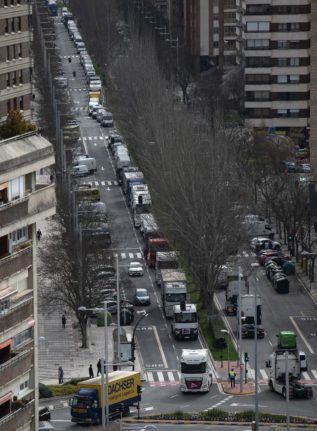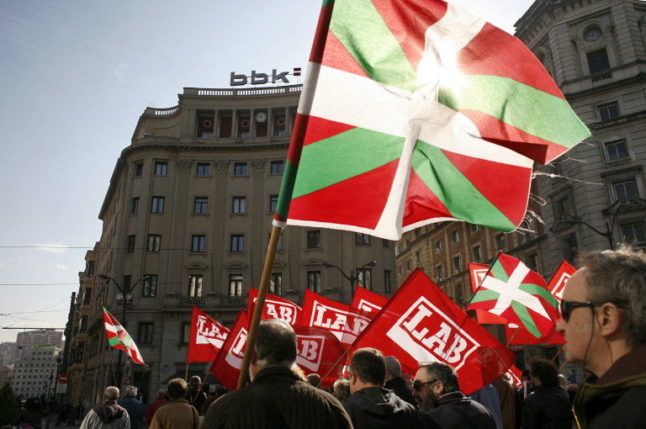An open-ended strike called by Spanish lorry drivers over sky-rocketing fuel prices earlier this week has put Spanish supply chains under stress and left several sectors struggling to cope.
And now, as the week comes to a close, the supply chain issues are starting to affect the consumer as supermarket shelves are becoming bare. On Thursday and Friday there has reportedly been a lack of fresh produce across Andalusia, and similar problems are expected across Spain if the strike continues.
The industrial action is also starting to have a noticeable impact in bars and restaurants, where deliveries for fresh products simply haven’t arrived, according to the Hospitality employers’ association of Spain.
It is believed losses to the food supply chain from one just week of strike action alone already amount to €600 million.
The strike action was called by a small drivers unions in protest against the crippling petrol prices affecting Spain and the rest of the world. By Wednesday, it had mushroomed into multiple roadblocks and protests, mainly focused on the country’s ports as well as industrial and commercial zones.
READ MORE: Spanish government vows to lower energy prices
Since the end of last year, social discontent has been simmering in Spain over inflation and rising utilities bills, the former jumping to 7.6 percent in February, the highest level in 35 years.
It has prompted UGT and the CCOO, Spain’s two biggest trade unions, to call for a national strike on March 23rd.
However Spain’s main business lobby CEOE and CEPYME, which represents small and medium-sized enterprises, said such “violent and anti-democratic acts” are “causing serious harm to the supply chain in industry, business and the food sector” as they try to recover from the COVID-19 pandemic.
The government has also called for an end to the strike. “We are seeing acts of violence by a minority who are blocking other truckers working to ensure the supply of foodstuffs and other primary materials at a very difficult moment,” tweeted government spokeswoman Isabel Rodriguez.
The Minister of Transport, Raquel Sánchez, claimed later in the week that the government will never negotiate “with a group of radicals.” The PSOE-led coalition government attracted widespread criticism for its handling of the Cádiz metalworkers strike last November, and will be keen to avoid another political own-goal like the one it suffered when it sent a tank onto the Cádiz streets to deter striking workers.
The government is keeping over 23,000 police officers ready to guarantee the continuation of supply chains and act in the event of possible violent pickets.



 Please whitelist us to continue reading.
Please whitelist us to continue reading.
Member comments